Роберт Бюттнер - Orphan's Destiny
Здесь есть возможность читать онлайн «Роберт Бюттнер - Orphan's Destiny» весь текст электронной книги совершенно бесплатно (целиком полную версию без сокращений). В некоторых случаях можно слушать аудио, скачать через торрент в формате fb2 и присутствует краткое содержание. Жанр: Боевая фантастика, на английском языке. Описание произведения, (предисловие) а так же отзывы посетителей доступны на портале библиотеки ЛибКат.
- Название:Orphan's Destiny
- Автор:
- Жанр:
- Год:неизвестен
- ISBN:нет данных
- Рейтинг книги:3 / 5. Голосов: 1
-
Избранное:Добавить в избранное
- Отзывы:
-
Ваша оценка:
- 60
- 1
- 2
- 3
- 4
- 5
Orphan's Destiny: краткое содержание, описание и аннотация
Предлагаем к чтению аннотацию, описание, краткое содержание или предисловие (зависит от того, что написал сам автор книги «Orphan's Destiny»). Если вы не нашли необходимую информацию о книге — напишите в комментариях, мы постараемся отыскать её.
Orphan's Destiny — читать онлайн бесплатно полную книгу (весь текст) целиком
Ниже представлен текст книги, разбитый по страницам. Система сохранения места последней прочитанной страницы, позволяет с удобством читать онлайн бесплатно книгу «Orphan's Destiny», без необходимости каждый раз заново искать на чём Вы остановились. Поставьте закладку, и сможете в любой момент перейти на страницу, на которой закончили чтение.
Интервал:
Закладка:
Howard and I shivered in a classroom-sized compartment, while I leaned against its stainless-steel plating. It was designed as a trauma center for the battlefield casualties that Excalibur’s embarked division had been spared. So we peered over cheekbone-high red rubber masks that filtered formaldehyde stink, as much as filtered any Slug germs, and through the chill fog of our own breath in the bright-lit, operating-room chill. In each compartment corner, a dead Slug lay on a stainless-steel morgue slab. Lab-coated, surgical-masked Spooks hunched over each corpse.
Howard led me to the closest one and spoke to a scalpel-wielding woman who bent over a Slug, slit open nose to tail, like a cleaned trout. Howard said, “What have you got this morning?”
She wiped her hands on a towel, then handed him a Chipboard. I hoped she was wearing contact lenses because her pupils were neon orange. They matched her lip gloss. Soldiers didn’t call Howard’s Intelligence soldiers Spooks for nothing. He and his work lured people with unique skills to the military. The military, in turn, allowed him to manage them uniquely.
Tangerine Woman said, “This one was immature. If we can apply that terminology to new sub-parts of a Pseudocephalopod organism that was probably older than dinosaurs. First time we’ve really identified one fresh from the incubator. Nitric acid traces on the epidermis.” She pointed at white glop on the Slug’s skin. A slit-open tube, like a purple flower stem, wound through the green jelly of the Slug’s innards.
Howard pointed. “Gut contents?”
“Ammonia. Nitrates.”
He handed her back the Chipper. “Metabolic rate?”
“Fast. It must have taken a battalion of cooks to feed a Slug army.”
Conversations at the other tables yielded similarly fascinating factoids about our extraterrestrial former neighbors.
Out in the companionway, Howard and I stripped off our synwool-lined lab coats and I rubbed cold from my fingers. “Anything interesting?”
Howard’s eyes gleamed. “Well, the young one, as you would call it. That’s fascinating.”
“Oh, yeah. Ammonia. My curiosity knew no bounds. So what?”
“The Pseudocephalopod nurtured its new tissue in fertilizer.”
“Slugs were plants?”
“Slugs, as you call It, were alien. The Linnean hierarchy we use to categorize life on Earth may have no application elsewhere. Shoe-horning alien life-forms into our kingdoms and phyla is nonsense.”
Not only nonsense but as useless for humanity’s future as invertebrate paleontology. “What about your Slug Football?” Slug hardware might actually teach us something we could use. We knew the Slugs had technology that stifled our nukes. That’s why we had to send infantry to Ganymede in the first place, instead of just smearing that rock with a few zillion megatons. Howard called what the Slugs did “neutron damping.” Whatever.
Since the turn of the century, the spread of democracy had obsoleted terrorism. At least, the theory was that if citizens were free to finance minivans and Sony RoomHolos they would be too busy to blow up others. It had worked. But “one maniac with the wrong suitcase” still terrified any rational human. If The Football turned out to be a device we could replicate in every city, and neutralize nukes, now that would be worth The Brick.
Howard’s lips curled like he’d sucked a lemon. “Hardware research jurisdiction is with Space Force. Brace had the crate stored. With the Pseudocephalopod gone, the artifact is beyond price.”
I made my own sour face. “Howard, is it possible the Slugs aren’t gone?”
“Oh, the Pseudocephalopod presence on Ganymede is eradicated, alright. Seven months of patrolling, satellite recon, and Tactical Observation Transport surveys are pretty conclusive.”
“You know what I mean. This idea that in the whole galaxy there was just this one roving pack of slinking green worms and we exterminated them. That’s crap.”
Howard shrugged. “Science reacts to observable data. One hundred fifty years ago, geophysicists said the continents could never have drifted apart because there was no observable energy source big enough to have moved them. Any schoolchild who looked at the jigsaw puzzle on a classroom globe could see that was balderdash. But we lack any data that the Pseudocephalopod still exists. Pseudocephalopod extinction is a soothing faith. Like heaven. The memories of this war are enough nightmare for the next ten generations. Worrying about repeating it could paralyze reconstruction.” Howard unwrapped a nicotine gum stick with shaking, yellowed fingers. Spouting a party line he didn’t believe made Howard long for a cigarette. But he couldn’t have one aboard a spaceship.
He chewed, then sighed. “Besides, we don’t really have the tools aboard to examine The Football non-invasively. We’ll do it Brace’s way.”
Aboard Excalibur, everybody did everything Brace’s way.
Which brings me to Captain’s Breakfast and my role in yet another court-martial. I attract those like lint.
EIGHT
IF THERE WAS ONE THING Atwater Nimitz Brace valued more highly than his own reflection, it was tradition. So he had instituted Captain’s Breakfast, a magnanimous social throwback. Brace invited all who signed up, even embarked enlisted infantry, to be his guests each Sunday morning for white-linen buffet brunch in the officers’ mess. The officers’ mess swabbie cooks were Brace’s hand-picks, and they got first crack at stores. So, much as it pains an infantryman to admit it, Brace’s Navy set the best table between Jupiter and the orbit of Mars.
However, GIs prize sack time above rubies and they could sleep in Sundays. There was just one reason that my troops had crowded the sign-up sheets for Captain’s Breakfast at each of the fifty Sundays since we had left Jupiter.
Since the truly old times, not just before the hydrofoil Navy but before diesel oil, sailors traditionally received a daily rum ration.
The modern military had no truck with recreational drugs, injected, inhaled, or ingested. But booze is “different,” and a ship’s captain is a demigod. Brace was permitted “Captain’s Stores,” and he could dispense them as he pleased.
At Captain’s Breakfast each diner hoisted two, no more, no less, thimblefuls of rum from the Captain’s Stores in toasts to John Paul Jones or the Navy Goat or whatever naval icon took Brace’s fancy that morning.
Trust the infantry to sniff out, within four hundred billion cubic miles of vacuum, the only open bar.
On that Sunday, I took advantage of the table reserved for the embarked-division commanding officers, me and the Third Division CO. The truth was us seven hundred survivors were baggage. The ten thousand undamaged troops of Third Division were the embarked division, but Third’s CO played squash on Sunday mornings. The remaining two hundred gluttons crowding the officers’ mess included my soldiers, Third Division troops, swabbies, and Brace with his staff.
And the lone civilian aboard, who stood less than three feet tall and drooled.
Jude Metzger may have been a civilian but that Sunday he was decked out in cut-down Space Force dress blues the quartermaster had sewn for him. Jude’s little uniforms weren’t some cradle-robbing military brainwash. The Toddler Department at Tykes-’r-Us was still a hundred million miles away. We improvised with what we had aboard.
With years of travel to fill, the quartermaster’s tailors weren’t Jude’s only adoptive parents. Cooks baked him zwieback when he was teething and pureed carrots when he wasn’t. Machinists mates fabricated little medal replicas for his uniforms. Munchkin stopped using those after Jude ate the Victoria Cross.
I suppose GIs dote on kids from guilt because our job is to slaughter parents we’ve never met. Or we seek the childhood we lost.
Читать дальшеИнтервал:
Закладка:
Похожие книги на «Orphan's Destiny»
Представляем Вашему вниманию похожие книги на «Orphan's Destiny» списком для выбора. Мы отобрали схожую по названию и смыслу литературу в надежде предоставить читателям больше вариантов отыскать новые, интересные, ещё непрочитанные произведения.
Обсуждение, отзывы о книге «Orphan's Destiny» и просто собственные мнения читателей. Оставьте ваши комментарии, напишите, что Вы думаете о произведении, его смысле или главных героях. Укажите что конкретно понравилось, а что нет, и почему Вы так считаете.

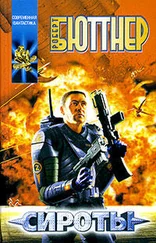

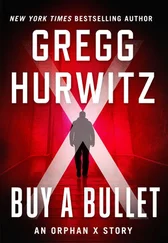
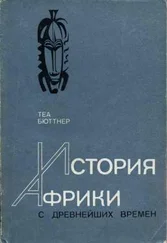
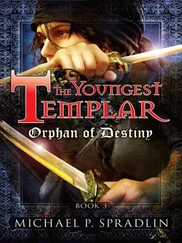
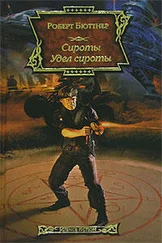
![Дэн Бюттнер - Где живет счастье [Правила жизни самых счастливых людей планеты] [litres]](/books/395574/den-byuttner-gde-zhivet-schaste-pravila-zhizni-samyh-thumb.webp)



